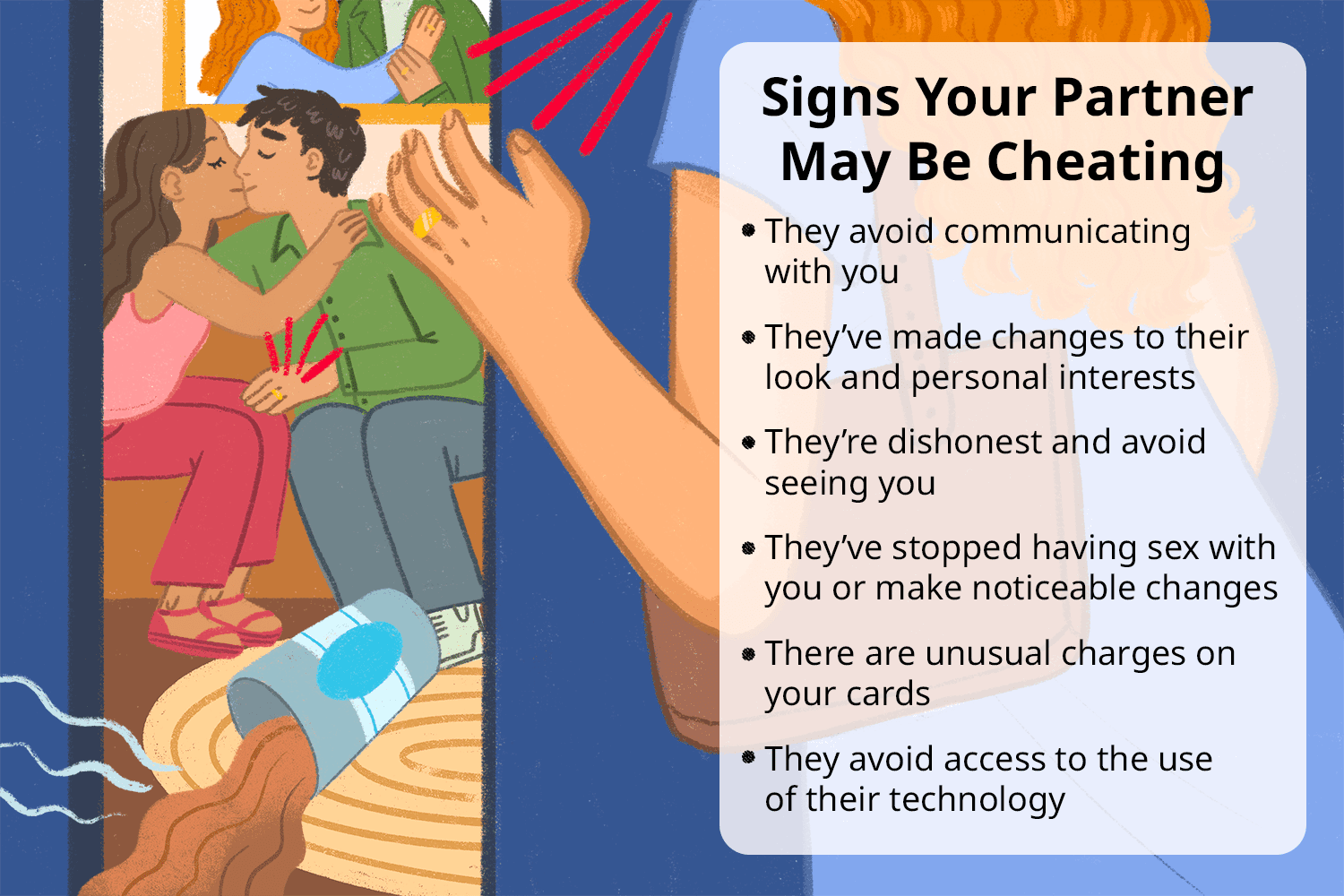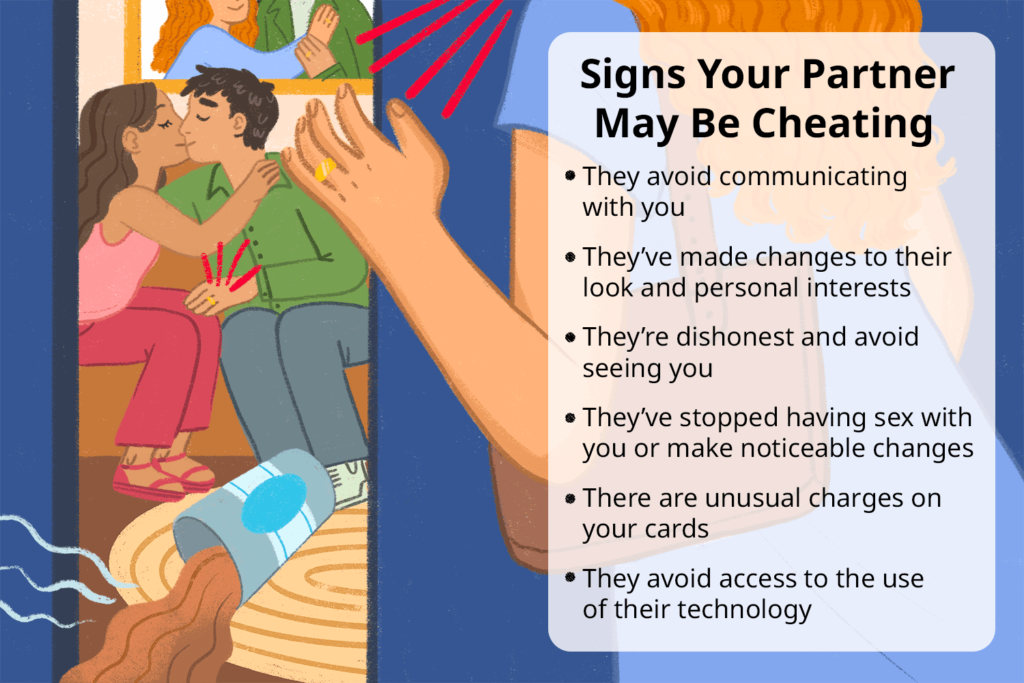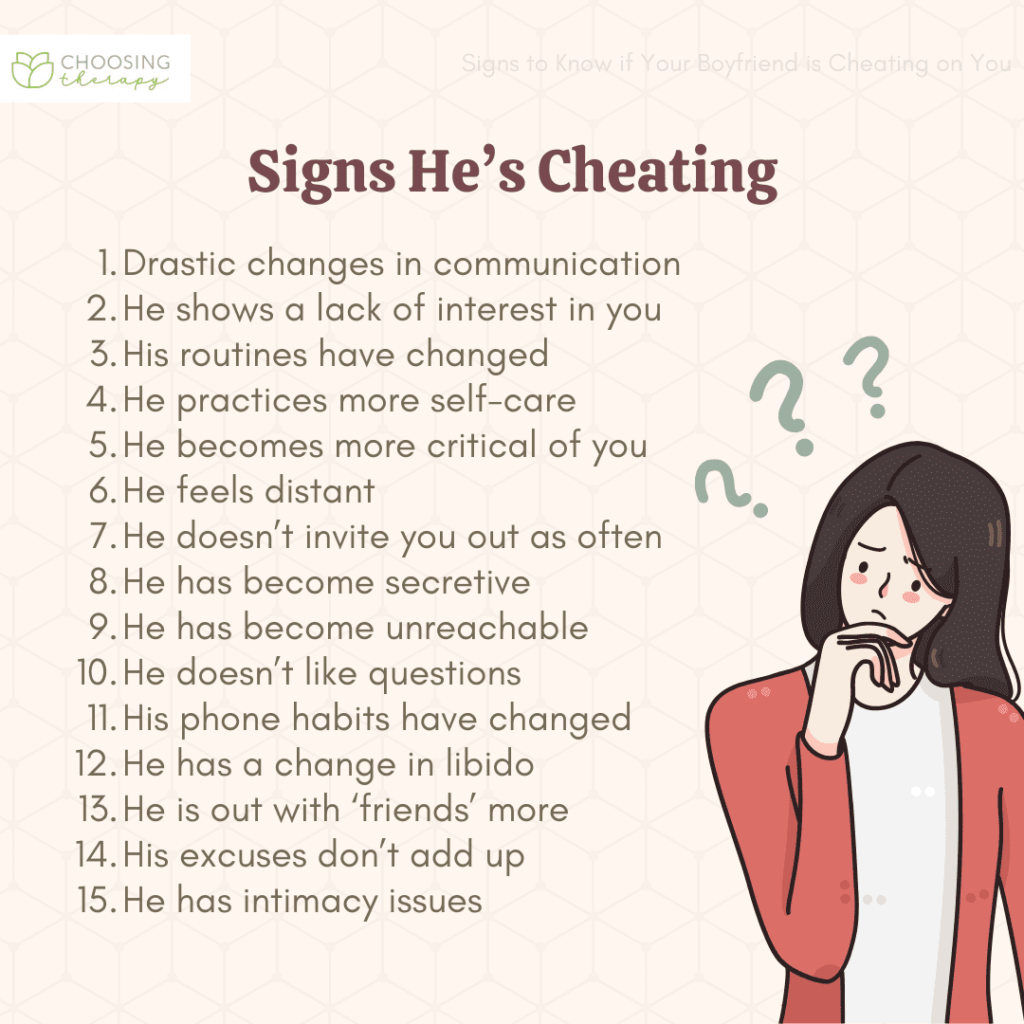
Picture this: you’re feeling a little uneasy in your relationship, with small doubts clouding your mind. Your partner’s behavior has been a bit off lately, and you can’t help but wonder, “How can I tell if my partner is cheating on me?” Don’t worry dear friend, because we have the answers you’re looking for. In this informative article, we will explore the subtle signs, red flags, and insightful tips that can help you unravel the truth and gain the clarity you seek. Discover the keys to unlocking the mystery and empowering yourself with the knowledge you need. It’s time to put your mind at ease and take control of your relationship once again.
Signs of Cheating
Cheating in a relationship is a devastating and painful experience. It can leave you feeling betrayed, hurt, and questioning the trust you once had in your partner. If you suspect that your partner may be cheating, it is important to look out for certain signs that can indicate infidelity. While these signs may not definitively prove that your partner is cheating, they can provide valuable insight into their behavior and give you a better understanding of what may be going on in your relationship.
Changes in Behavior
One of the most common signs of cheating is a sudden and unexplained change in your partner’s behavior. If your partner starts acting strangely or exhibits unusual habits, it might be a cause for concern. For instance, they may become more secretive with their phone, spending excessive time texting or talking to someone they don’t want you to know about. They may also exhibit a lack of interest in spending quality time with you, opting instead for excuses to be away from home or constantly being preoccupied with other things. Keep an eye out for any abrupt changes in their routine, hobbies, or interests, as these can be indicators that something is amiss.
Emotional Distancing
Emotional distancing is another red flag that your partner may be cheating on you. If they suddenly become less communicative, avoid discussing important matters, or show a lack of interest in your thoughts and feelings, it could be a sign that they are emotionally detaching from the relationship. Your partner may no longer make an effort to engage in deep conversations or share their innermost thoughts, leaving you feeling disconnected and alone. Additionally, they may shy away from physical contact, such as hugs, kisses, or even holding hands, which can leave you feeling deprived of the emotional intimacy you once shared.
Secretive Behavior
Secretive behavior is a key indicator of potential infidelity. If your partner suddenly starts password protecting their devices, hiding their phone or laptop from you, or becoming excessively guarded about their privacy, it could mean they have something to hide. Moreover, if they avoid making eye contact during conversations, it may suggest they are withholding information or feeling guilty about their actions. While it is important to respect each other’s privacy in a relationship, a sudden increase in secretive behavior can erode trust and create a growing sense of suspicion.
Increased Defensiveness
If your partner becomes overly defensive and quick to anger whenever you address your concerns or raise the topic of infidelity, it could be a sign that they are hiding something. They may react with aggression, accuse you of not trusting them, or try to divert the conversation towards unrelated matters. Often, this defensiveness stems from the guilt they feel about their actions and serves as a way to protect themselves from being caught. It is essential to have open and honest conversations with your partner, but their defensiveness can make it difficult to address the issue of potential cheating.
Gut Feeling
Sometimes, your intuition can be a powerful indicator that something is not quite right in your relationship. If you have an unexplained suspicion, a persistent feeling of distrust, or simply a gut feeling that your partner is being unfaithful, it is important to trust your instincts. While it is crucial not to jump to conclusions based solely on your intuition, acknowledging and exploring these feelings can help you gain clarity and decide how to address the situation in a productive manner. Remember, your gut feeling should be considered in combination with other signs outlined in this article and should not be the sole basis for accusing your partner.

This image is property of www.verywellmind.com.
Physical Signs
In addition to changes in behavior and emotional cues, there may also be physical signs that suggest your partner is cheating. While these signs can vary from person to person, they are worth considering as part of a broader picture.
Change in Appearance
A sudden change in appearance can sometimes indicate that your partner is cheating. If they have started paying more attention to their physical appearance, such as buying new clothes, investing in grooming products, or experimenting with a different style, it could be a cause for concern. While it is not uncommon for individuals to make changes in their appearance for various reasons, a significant and sudden transformation without a clear explanation may indicate a desire to impress or attract someone else.
Sudden Interest in Fitness
Another physical sign to watch out for is a sudden interest in fitness. If your partner suddenly joins a gym, starts working out more frequently, or becomes overly concerned about their physical appearance, it might raise suspicions. While taking care of one’s health and fitness is generally a positive thing, an abrupt and intense focus on physical fitness without any previous interest may suggest that they are trying to improve their attractiveness for someone other than you.
Signs of Sexual Activity
One of the most obvious physical signs of cheating can be changes in your sexual relationship. If your partner’s sexual behavior has dramatically shifted, such as a sudden decrease in sexual activity or a significant increase in their sexual appetite, it may be a cause for concern. Additionally, any signs of sexual activity that are out of the ordinary, such as unfamiliar scents, unexplained marks or bruises, or a sudden aversion towards intimacy, should not be dismissed. These physical indicators should be taken seriously and addressed in a sensitive and open manner with your partner.

This image is property of cdn-biiph.nitrocdn.com.
Having Open Conversations
If you suspect that your partner is cheating, it is important to approach the situation with sensitivity and honesty. Open and honest communication is essential for maintaining a healthy relationship, even when discussing difficult topics like infidelity. Here are some steps you can take to have productive conversations about your concerns:
Expressing Your Concerns
Start the conversation by expressing your feelings and concerns in a non-accusatory manner. Use “I” statements to convey how their behavior or actions have made you feel, rather than making direct accusations. For example, say “I feel hurt and disconnected when our communication has decreased” instead of “You always ignore me and never talk to me anymore”. By focusing on your emotions, you create a safe space for open dialogue that can lead to better understanding between you and your partner.
Sharing Your Insecurities
Being vulnerable and sharing your insecurities can help foster empathy and compassion in your discussions about potential infidelity. Explain to your partner how their behavior has triggered your feelings of insecurity and betrayal. Sharing your own vulnerabilities can help them understand the emotional impact of their actions and create a more conducive environment for open and honest conversation.
Discussing Relationship Expectations
Engage in a dialogue about your relationship expectations, boundaries, and the importance of trust. Communicate what fidelity and commitment mean to you and discuss whether your partner shares the same beliefs. By having these conversations, you can gain clarity on each other’s expectations and work towards aligning your values and rebuilding trust, if necessary.
Remember, while these steps can guide you in having open conversations, it is important to keep in mind that determining whether or not your partner is cheating requires more than just relying on signs and conversations. If you suspect infidelity, consider seeking professional help, such as couples therapy, to navigate through the difficult process of rebuilding trust and healing your relationship.






